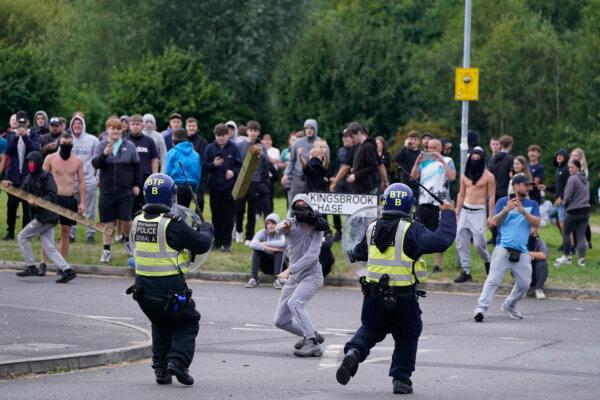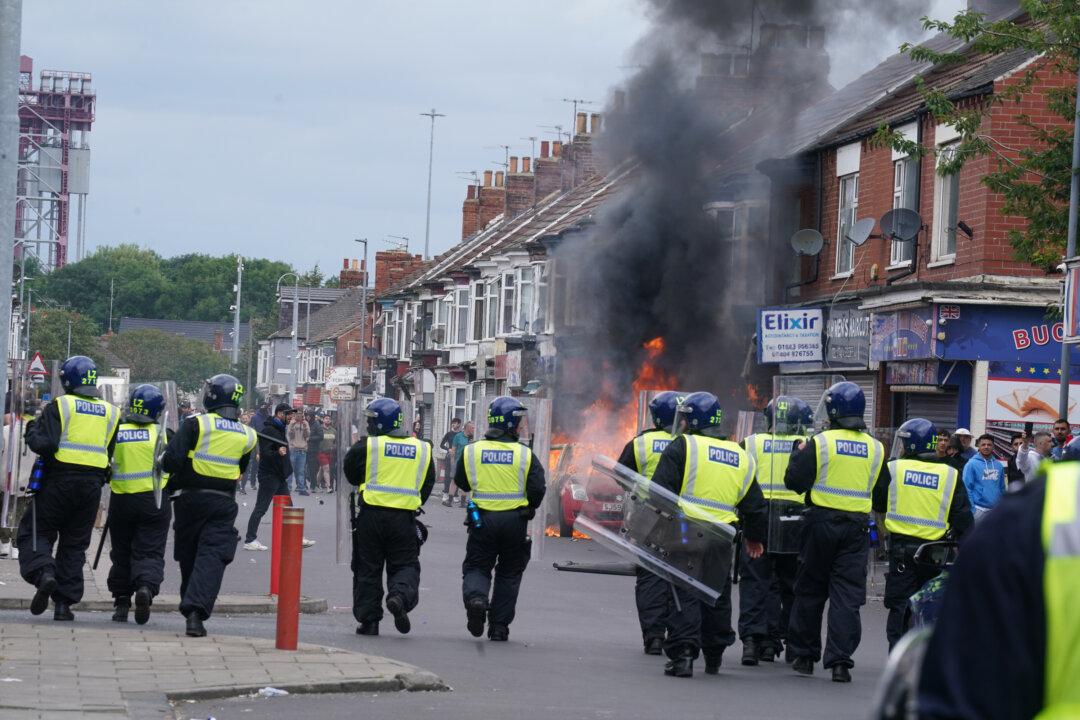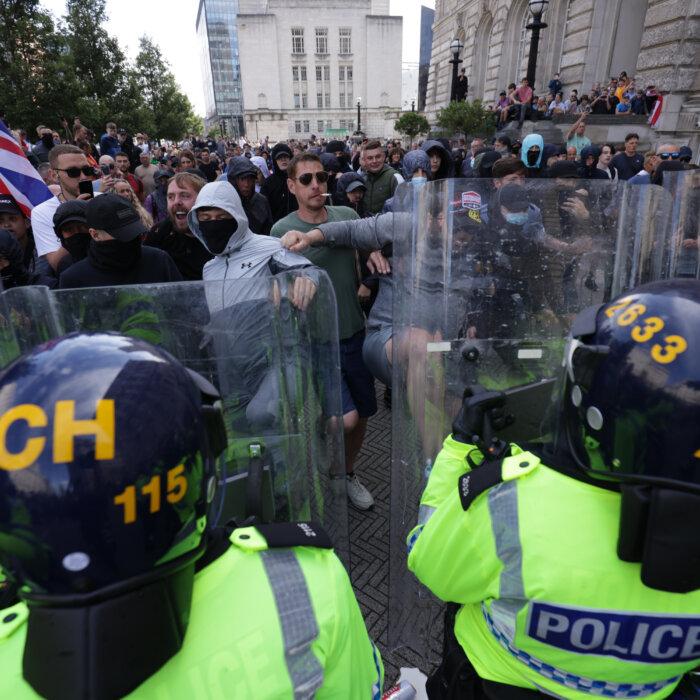Prime Minister Sir Keir Starmer has rejected claims made by Reform Party leader Nigel Farage that a system of “two-tier policing” was in place in Britain.
Last month rioters overturned a police car and set vehicles on fire in the Harehills district of Leeds after social workers removed a child from a Roma family amid welfare concerns.
In a statement Farage said the “impression of two-tier policing” had “become widespread” and called for Parliament to be recalled.
But speaking after an emergency Cobra meeting on Monday which addressed the unrest and the police response, Starmer said: “There is no two-tier policing. There is policing without fear or favour, exactly as it should be, exactly what I would expect and require.”
Patel Backs Starmer on Two-Tier Policing
Former Home Secretary Dame Priti Patel also dismissed Farage’s claims.She told Times Radio: “There is a clear difference between effectively blocking streets or roads being closed, to burning down libraries, hotels, food banks, and attacking places of worship.
“What we have seen is thuggery, violence, racism,” added Patel, who served in the last Conservative government under then-Prime Minister Boris Johnson.
She said of Farage’s remarks: “Those kinds of comments are simply not relevant right now. That is not correct, it is not correct.”
Starmer has also hinted at the possibility of stepping up a national riot police, similar to France’s Compagnies Républicaines de Sécurité.
“We will have a standing army of specialist public duty officers so that we will have enough officers to deal with this where we need them,” said Starmer, without elaborating.
Starmer also indicated that people on social media who were perceived to have whipped up the violence in the last week would face “the full force of the law.”
Technology Secretary Peter Kyle also accused some social media platforms of ignoring or exacerbating the problem.

Writing on social media platform X, Kyle said: “The internet cannot be a haven for those looking to sow division in our communities. Responsibility for harmful social media content principally rests with the individuals and groups who create it.”
“But it is undeniable that social media has provided a platform for this hate. We have been clear with these companies they also have a responsibility not to peddle the harm of those who seek to damage and divide our society, and we are working closely with them to ensure they meet that responsibility,” he added.
Starmer—a former director of public prosecutions—said, “The criminal law applies online as well as offline.”
Downing Street Criticises Elon Musk
He also condemned Elon Musk—who owns X—for claiming “civil war is inevitable” in the UK.“There’s no justification for comments like that,” Starmer’s spokesman said.
The spokesman said the government was working with social media platforms to ensure they remove content that incites violence quickly.
“But there is more that they can and should be doing ... to counter misleading and inflammatory material hosted on their platforms,” he added.
He said social media platforms should be more proactive and should not forget the Online Safety Act, which came into force in January.
Among the criminal offences introduced by the act are “threatening communications” and “sending false information intended to cause non-trivial harm.”
It is unlikely those who shared the false information about the Southport attacker being a Muslim illegal immigrant could be prosecuted because of the difficulty of proving they intended to cause serious harm.






